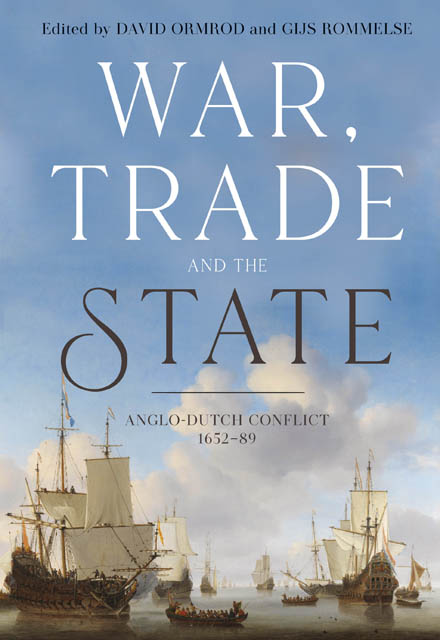5 - Competing navies: Anglo-Dutch naval rivalry, 1652–88
Published online by Cambridge University Press: 18 January 2023
Summary
The period of acute Anglo-Dutch rivalry in the seventeenth century involved three maritime economic wars and wide-ranging peacetime competition at sea, but ended with a transformation in international politics and mutual relations that turned those same rivals into the close allies that became known as ‘The Maritime Powers’. The three naval wars in 1652–54, 1665–67 and 1672–74, as well as the Dutch invasion of England in 1688, were separated by periods of maritime, economic, and colonial rivalry. The navies of both countries operated primarily in European waters, but there was a gradual increase in naval activities in the wider Atlantic world in this period. Although the immediate causes and contexts for each of the periods of conflict were different, these conflicts were each incremental stages in an Anglo-Dutch naval arms race that established navies as permanent standing forces among the major European powers. At the same time, navies created basic approaches to warship design, naval operations, and naval tactics that dominated European naval warfare into the early nineteenth century.
Competition in the maritime shipping world
The gradual ending of the Thirty Years’ War and the Eighty Years’ War between 1646 and 1648 transformed the international security and economic situations of Europe. For the Dutch Republic, these changes heralded a new phase in the Dutch economy that brought its maritime trade and dominance at sea to new heights. The Dutch advantage made English shipping rates no longer attractive and English shipping firms found themselves suddenly undercut in trading to the Baltic, Caribbean, Flanders, Italy, Ottoman Empire, Spain, and Portugal. England was not alone in feeling the brunt of Dutch commercial success. The merchants of Denmark, Genoa, the Hanseatic League, and Venice were also hurt, but the English losses were higher than others. In particular, the English resented Dutch success. Strongly objecting, the English ambassadors complained to the States General in March 1651 that Dutch shipping companies had been keeping the ‘foundation to themselves for ingrossing the universal trade not only of Christendom, but indeed, of the greater part of the knowne world’. This widening gap in maritime trade is one of several factors that led to war between England and the Dutch Republic, but it was only indirectly reflected in the corresponding naval developments in each country.
- Type
- Chapter
- Information
- War, Trade and the StateAnglo-Dutch Conflict, 1652-89, pp. 92 - 116Publisher: Boydell & BrewerPrint publication year: 2020

